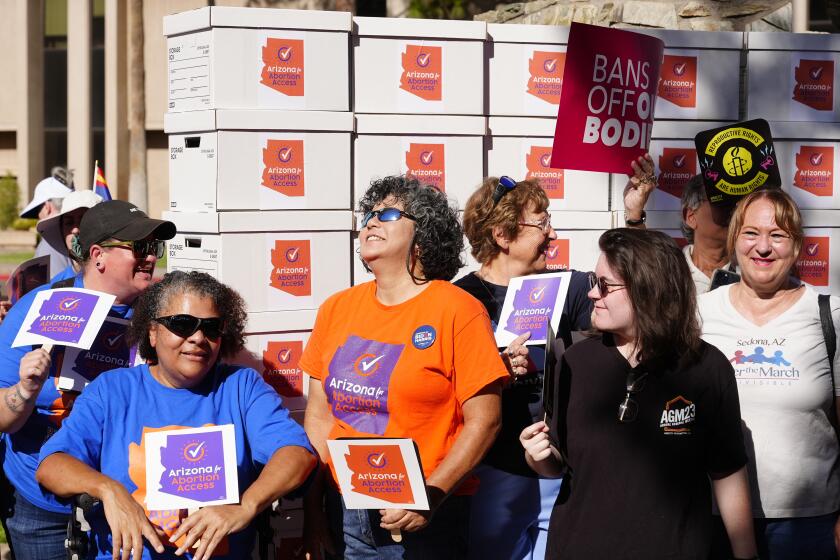First Combat, Then Court
Throughout the 20th century, there were repeated efforts to bring war criminals to justice. But making the sudden shift from wild wartime fury to measured peacetime justice has always dauntingly difficult, and as a result, most efforts have been flawed at best.
Dispensing justice is difficult even in the best of circumstances. When it is being imposed by foreigners, no matter how justifiably, resentful nationalists can always complain that they are being served up what is known as “victors’ justice.” That’s why, as the American government drew up plans in September 1944 for punishing the Nazis, Army Chief of Staff George Marshall cautioned Secretary of War Henry Stimson that “the same sort of thing ... happens after every war” and that “the bitterness of this one was sure to be extreme.”
Today in postwar Iraq, as the Bush administration and the world debate how to bring war criminals to justice, some of the same old challenges are being confronted. After World War I, for instance, the victorious British and French wrote demands for war crimes trials into the Treaty of Versailles. But the Allies ran into difficulty. Wilhelm II, the German kaiser, was to face trial but he fled to Holland and lived out his days in uneasy exile. Woodrow Wilson -- despite his reputation as the patron saint of international legal order -- denounced the British and French plans as vindictive and selfishly supported trials only for Germans accused of the one crime that had directly affected Americans: German submarine warfare in the Atlantic.
In Germany, citizens and politicians of all stripes deeply resented Allied justice. As a compromise, Britain and France agreed to let Germany hold its own trials in Leipzig in 1921. Not surprisingly, the court let off most of the defendants with acquittals or slaps on the wrist. In fact, the most significant legacy of Leipzig was a powerful nationalist backlash that undermined the fledgling Weimar Republic. Hermann Goering first encountered Adolf Hitler at a 1922 rightist protest against Allied calls for war crimes trials.
Britain also wanted to try the Ottoman leadership for mistreating British POWs and for what we today call the 1915 Armenian genocide. But as the Ottoman Empire slid into civil war, Kemal Ataturk, founder of the modern Turkish republic, took a handful of British soldiers hostage and demanded that the war crimes suspects be set free. Britain complied.
World War II ended with Nazi Germany under full Allied control, leaving little room for nationalist backlash. Stalin wanted to summarily shoot between 50,000 and 100,000 Germans. Even some democratic leaders -- led by U.S. Treasury Secretary Henry Morgenthau Jr. and Winston Churchill -- had argued that Hitler and Goering deserved to be shot rather than tried. It took a concerted effort by Stimson, a lawyer as well as secretary of War, to get trials that included “at least the rudimentary aspects of the Bill of Rights.” The Nuremberg trials that followed were flawed in many ways: They underemphasized the Holocaust, focused on Nazi aggression and were tainted by the actions of a Soviet judge and Soviet prosecutors. Despite that, they were an extraordinary achievement.
As the American prosecutor, Robert Jackson, thundered in his opening statement: “That four great nations, flushed with victory and stung with injury, stay the hand of vengeance and voluntarily submit their captive enemies to the judgment of the law is one of the most significant tributes that power has ever paid to reason.”
In recent days, the U.S. has not offered much support for international efforts to dispense justice. The Bush administration has largely ignored the trial of Slobodan Milosevic at The Hague and has opposed the new International Criminal Court, which Bush fears could be turned against Americans.
Today, the White House is calling for two kinds of courts in Iraq: American tribunals for Iraqi offenses against American soldiers and Iraqi-led tribunals for the other atrocities committed by Saddam Hussein’s regime. Nationalist backlash is still a risk, but a potential advantage is that an Iraqi court cannot be accused of being a foreign implant -- although judges still could be tagged as U.S. stooges.
In the months ahead, war crimes trials can help channel reprisals into something more than vengeance and perhaps demonstrate the importance of the rule of law. By recounting a litany of Hussein’s crimes -- the gassing of Iranian soldiers in the Iran-Iraq war, the extermination of about 100,000 Kurds in 1988, the rampage in Kuwait and the murder of political opponents -- war crimes trials will remind Iraqis and the world of what kind of regime just fell in Baghdad, helping insulate Iraq from any revival of that brand of politics.
Gary J. Bass, an assistant professor of politics and international affairs at Princeton, is the author of “Stay the Hand of Vengeance: The Politics of War Crimes Tribunals” (Princeton University Press, 2000).
More to Read
Sign up for Essential California
The most important California stories and recommendations in your inbox every morning.
You may occasionally receive promotional content from the Los Angeles Times.










